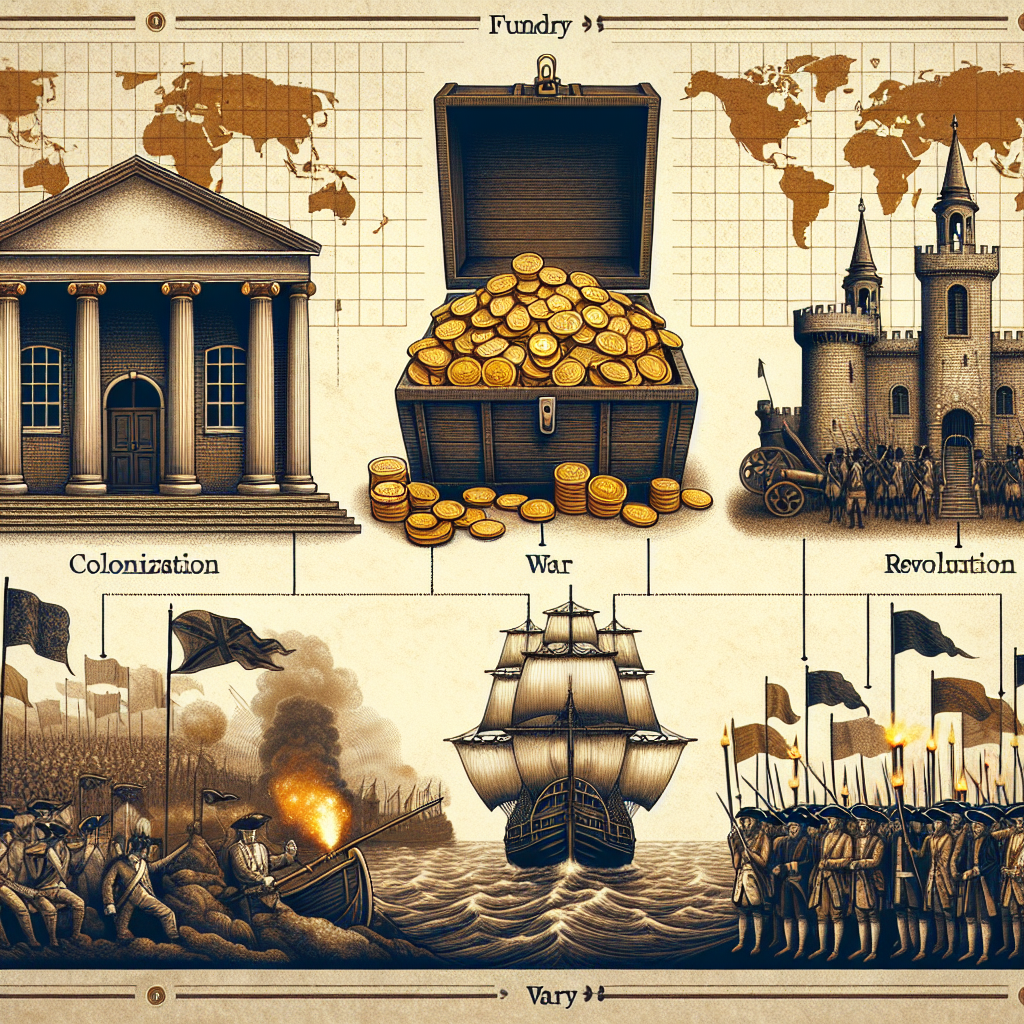The Role of Banks in Funding Major Historical Events: Wars, Colonization, and Revolutions
Banks have always played a crucial role in shaping world history. Their financial muscles have been instrumental in funding significant events, including wars, colonization efforts, and revolutions. In this blog post, we’ll take a journey through time to explore how banks have influenced these historical milestones, making it not only an intriguing topic but also an eye-opener for anyone interested in the financial engines behind major historical events.
Banks and Wars: Financial Powerhouses Fueling Conflicts
When we think about wars, we often consider the soldiers, strategies, and statecraft. But behind the scenes, banks have been the financial engines keeping the war machines running. From the Crusades to the World Wars, the influence of banks has been monumental.
During the Crusades, for instance, the Knights Templar established an early form of banking to support these religious wars. Fast-forward to the 20th century, and you’ll find banks in every major power playing a critical role in funding military operations during World Wars I and II.
The relationship between banks and war often involves:
- Issuing government bonds
- Financing arms manufacturers
- Providing war loans
Indeed, the modern concept of national debt was largely born out of the need for massive war financing.
Colonization: Banks as Catalysts for Empire Building
Colonization may evoke images of explorers and uncharted territories, but it was banks that often held the purse strings. The Age of Exploration, driven by European powers, leaned heavily on financial institutions to sponsor voyages and assert control over newfound lands.
Banks like the Bank of England and the Dutch East India Company were pivotal in financing colonization missions. Here’s how they contributed:
- Providing Capital: For shipbuilding, crew payment, and provisions.
- Managing Risk: Sharing the risks of expeditions through joint-stock companies.
- Generating Profits: By extracting resources and establishing trade routes.
The interplay between colonization and banking is a classic example of financial power driving geopolitical dominance.
Revolutions: Financial Backing for Social Change
Revolutions may appear to be spontaneous outbursts of popular sentiment, but beneath the surface, financial backing often plays a crucial role. Banks have facilitated social change by funding revolutionary movements and enabling the overthrow of established regimes.
Consider the American Revolution. It wasn’t just a war fought with muskets and bayonets; it was also a financially sophisticated effort involving loans from European banks and support from financiers like Robert Morris, known as the “Financier of the Revolution”.
The Russian Revolution also had its share of financial drama, with various factions receiving financial support from both domestic and international bankers.
Banks help revolutions by:
- Offering loans to revolutionary governments
- Funding the production of propaganda
- Supporting the creation of new economic systems
Without the financial backing from banks, many revolutionary movements would not have achieved their goals.
Conclusion: The Inextricable Link Between Banks and History
Whether it’s the theater of war, the expansive ambitions of colonization, or the fervor of revolutions, banks have been inextricably linked to some of the most significant events in history. Their ability to provide financial support in these arenas has not only shaped outcomes but also influenced the course of world history.
As we move further into the 21st century, understanding the role of banks in these historical contexts offers valuable insights into how financial systems can both stabilize and disrupt societies. It’s a compelling narrative that underscores the immense power banks hold in the global arena, shedding light on their omnipresent influence through the ages.
So next time you observe a major historical event, remember to peek behind the curtain—you might just find a banker pulling the strings!
